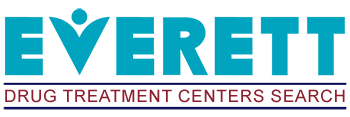Prescription Drug Abuse in Everett, MA
Prescription drug abuse is a growing problem in American society, including the abuse of opiates, sedatives, and stimulants. While illegal drugs such as heroin and meth get the vast majority of media attention, the misuse and overuse of prescription medications cause more overdose-related deaths than all illegal drugs combined. Prescription drug abuse can be treated in many ways, with access to treatment dependent on the substance of abuse, extent of abuse, and operational philosophy of each treatment center. For example, some facilities adhere to the disease model of addiction and others adhere to the free will model of addiction.
How are Prescription Drugs Abused?
Prescription medications are abused whenever someone takes them in a different way than originally intended by a doctor. People obtain prescriptions through the medical system and the black market, with some people visiting more than one doctor in a practice recognized as “doctor shopping”. While people abuse drugs in different ways depending on the substance in question, there are some similarities between drug classes. Common methods of abuse include using drugs intended for someone else, mixing drugs together, increasing dosage levels, and crushing up pills in order to snort or inject them for a stronger effect.
Signs and Symptoms of Prescription Drug Abuse
If you’re concerned about drug abuse by someone you love, there are some general signs that are worth watching out for. Common warning signs include mood swings, unexplained energy, unexplained sedation, unexplained euphoria, financial problems, depression, anxiety, and the possession of multiple prescriptions. An intervention is sometimes needed before someone is ready to admit the existence or extent of their drug problem, with direct and indirect intervention methods both available.
Prescription Opiates
Opiates are the most widely abused class of prescription drugs, including Oxycontin and Vicodin among others. Opiate medications are regularly prescribed for pain relief and often abused to induce euphoria and relaxation. All opiates are central nervous system (CNS) depressants, meaning that they slow down brain activity when consumed. A range of treatment options are available for people experiencing opiate abuse or addiction, including medical detox, inpatient and outpatient rehab, and aftercare support programs.
Prescription Sedatives
Prescription sedatives, also known as tranquilizers, are the second most widely abused class of prescription drugs in the Untied States. While barbiturates are also classified as sedatives, most abuse cases concern benzodiazepine medications such as Xanax, Klonopin and Valium. These drugs are capable of causing a physical-somatic withdrawal syndrome when abused regularly, with a combination of medication treatment and behavioral therapy used to break the bonds of addiction.
Prescription Stimulants
Stimulants are the third most commonly abused class of prescription drugs in the United States, including Concerta, Ritalin, and Adderall. Unlike both opiates and sedatives, these drugs do not cause physical addiction, with users instead likely to experience drug cravings and other psychological effects when drug intake is stopped. Treatment for stimulant abuse includes cognitive behavioral therapy and relapse prevention programs.
Everett Drug Treatment Centers is your ultimate recovery resource. Please give our recovery advocates a call today at (617) 553-9495 for more information.

Leave A Comment